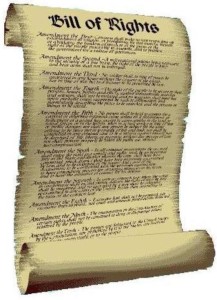 The US District Court for the District of New Jersey has applied the required records doctrine to documents required to be maintained under the US Bank Secrecy Act (BSA), and thus rejected taxpayers’ argument that they can refuse to produce such documents by invoking their privilege against self-incrimination under the Fifth Amendment to the US Constitution (United States of America vs. Eli Chabot and Renee Chabot, Civ. No. 14-3055 (FL W), 3 October 2014).
The US District Court for the District of New Jersey has applied the required records doctrine to documents required to be maintained under the US Bank Secrecy Act (BSA), and thus rejected taxpayers’ argument that they can refuse to produce such documents by invoking their privilege against self-incrimination under the Fifth Amendment to the US Constitution (United States of America vs. Eli Chabot and Renee Chabot, Civ. No. 14-3055 (FL W), 3 October 2014).
On May 12, 2012, Eli and Renee Chabot, appeared in front of the IRS to testify. The Chabots, on the advice of counsel, asserted their Fifth Amendment privilege and refused to answer any IRS questions about foreign bank accounts.
On June 20, 2012, the IRS issued another summons, requesting the parties to give testimony and produce extensive documents about foreign bank accounts. On July 13, 2012, the Chabots’ counsel advised the IRS that the Chabots would not appear, were asserting their Fifth Amendment privilege, and declined to produce the requested documents.
The US District Court stated that the required records doctrine applies if the following requirements are met:
-The purposes of the government inquiry must be essentially regulatory
-Information is to be obtained by requiring the preservation of records of a kind that the regulated party has customarily kept
-The records must have assumed public aspects that render the records at least analogous to public documents
In the case of the Chabots, the Court determined that the required records doctrine prevented the taxpayers from asserting their Fifth Amendment privilege, and the court granted the IRS’s petition to enforce its summons served on the taxpayers.

 Secret foreign bank accounts have been at the center of money laundering. This is especially with reference to offshore bank accounts. It is very common for people to hide money in secret foreign bank accounts in other countries in an effort to avoid paying taxes on the monies.
Secret foreign bank accounts have been at the center of money laundering. This is especially with reference to offshore bank accounts. It is very common for people to hide money in secret foreign bank accounts in other countries in an effort to avoid paying taxes on the monies.
